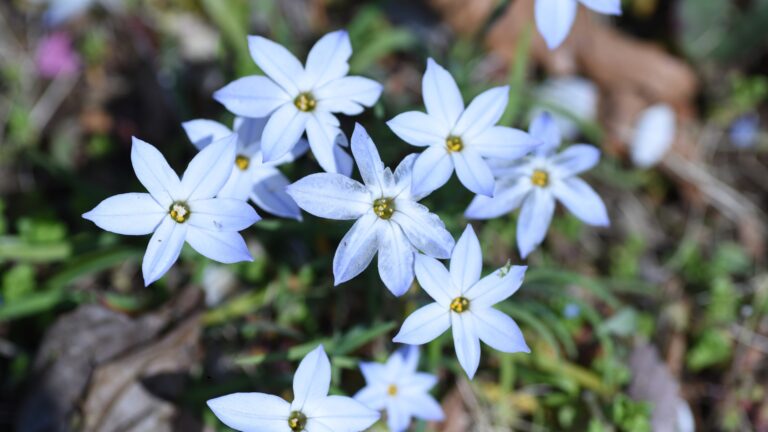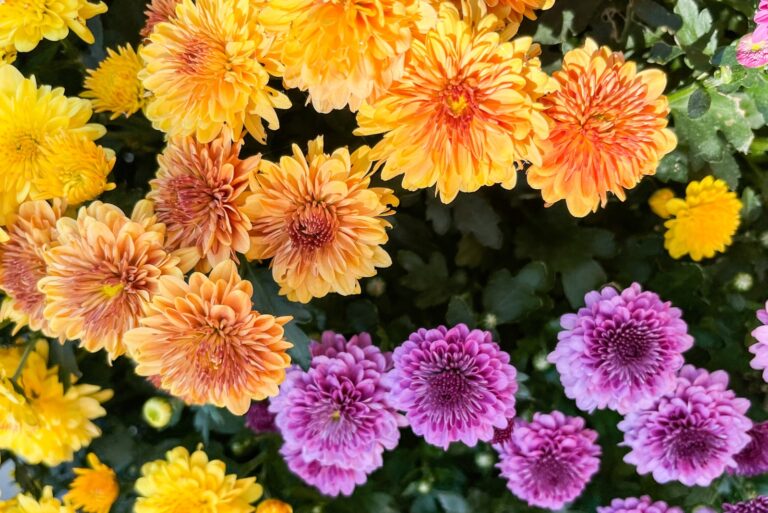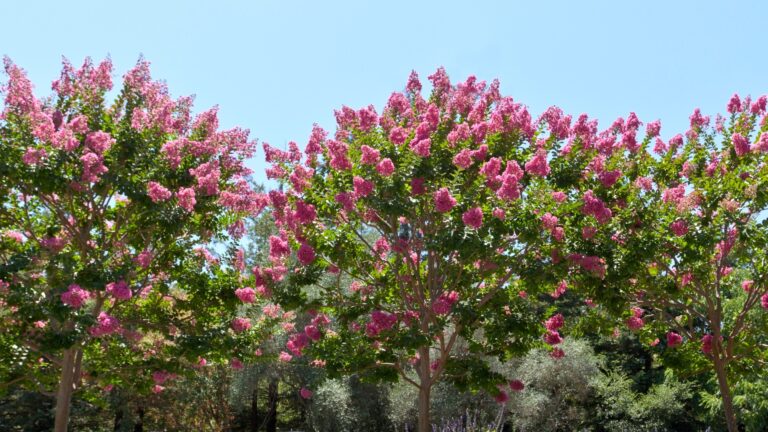Rain Barrel vs Basin – 15 Differences And Which One Suits Your Garden Best
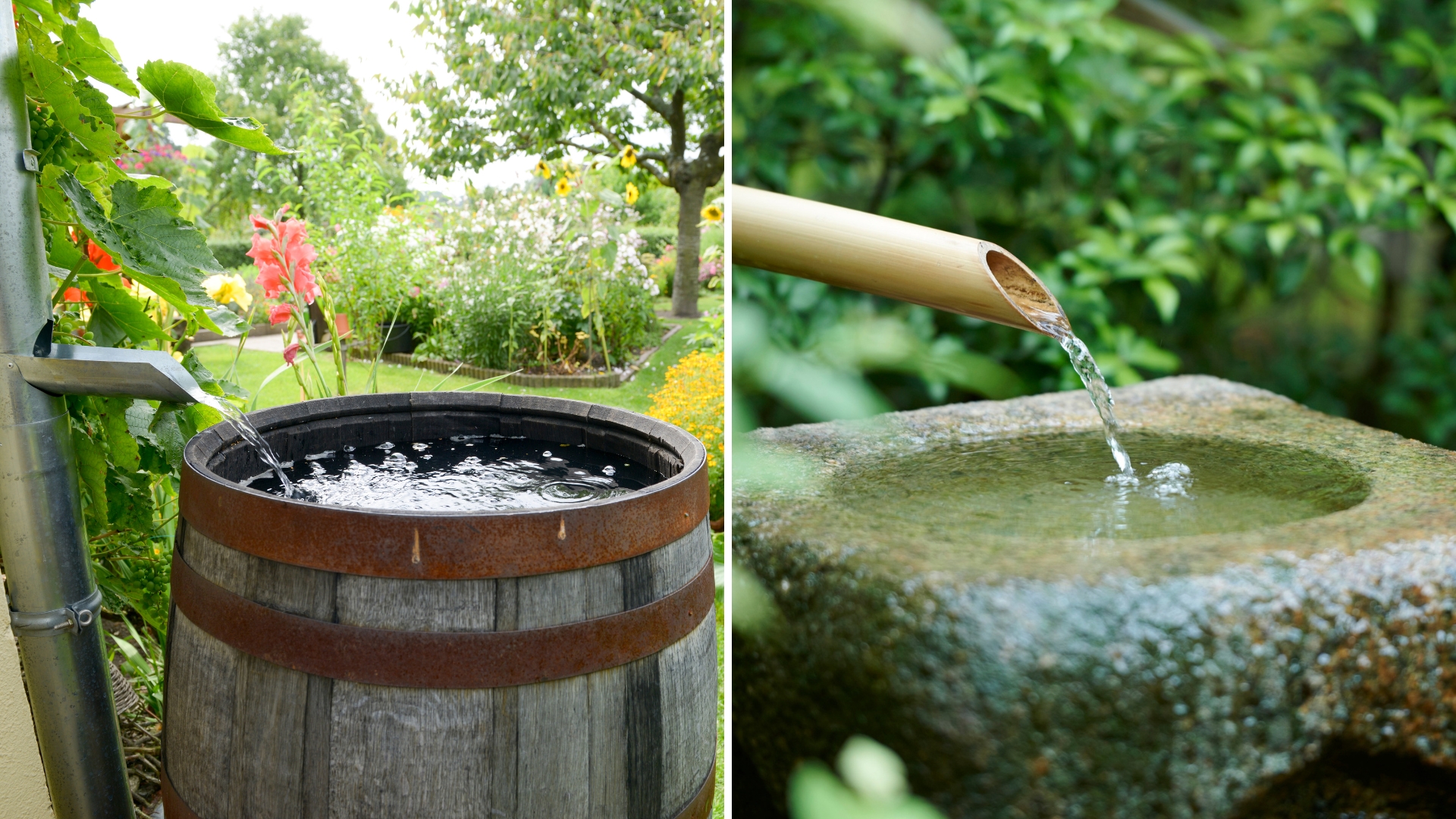
Thinking about collecting rainwater but not sure where to start? Two standout options—rain barrels and basins—offer smart, eco-friendly ways to harvest and reuse nature’s gift. While both serve the same purpose, their features, costs, and ideal uses are surprisingly different. Whether you’re aiming for sustainability, style, or sheer practicality, understanding these differences will help you choose the perfect fit for your home and garden.
1. Storage Capacity
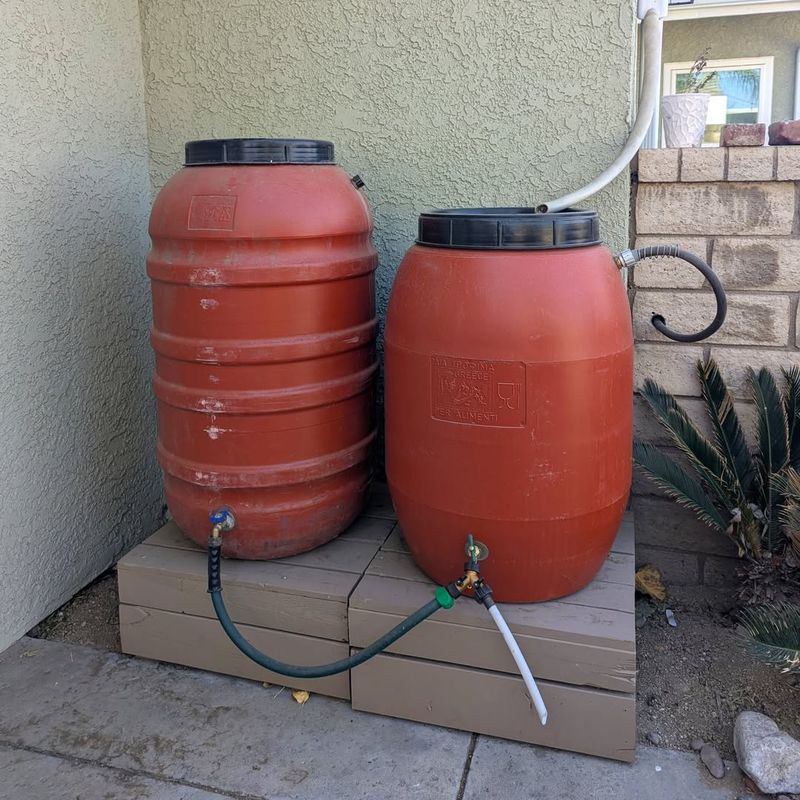
A rain barrel usually has a larger capacity, often holding up to 55 gallons or more. In contrast, a basin might store less water, typically designed for smaller areas.
This makes rain barrels ideal for larger gardens or if you need to store significant water for dry spells. Additionally, rain barrels are typically elevated and come with spigots, making it easier to connect hoses or fill watering cans directly.
2. Installation Ease
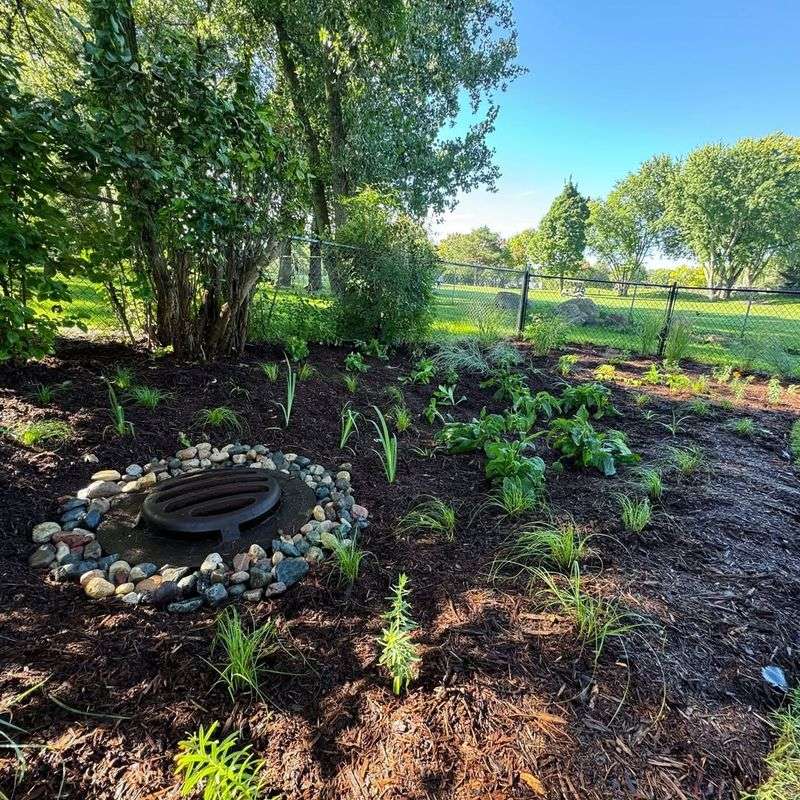
Rain barrels often require more complex installation processes like connecting to gutter systems. Basins, however, are generally easier to set up.
You can just place them directly on the ground in the garden. This makes basins perfect for quick, hassle-free water collection systems.
However, because basins are ground-level, they may be more prone to collecting debris or attracting pests if not properly maintained.
3. Cost Consideration
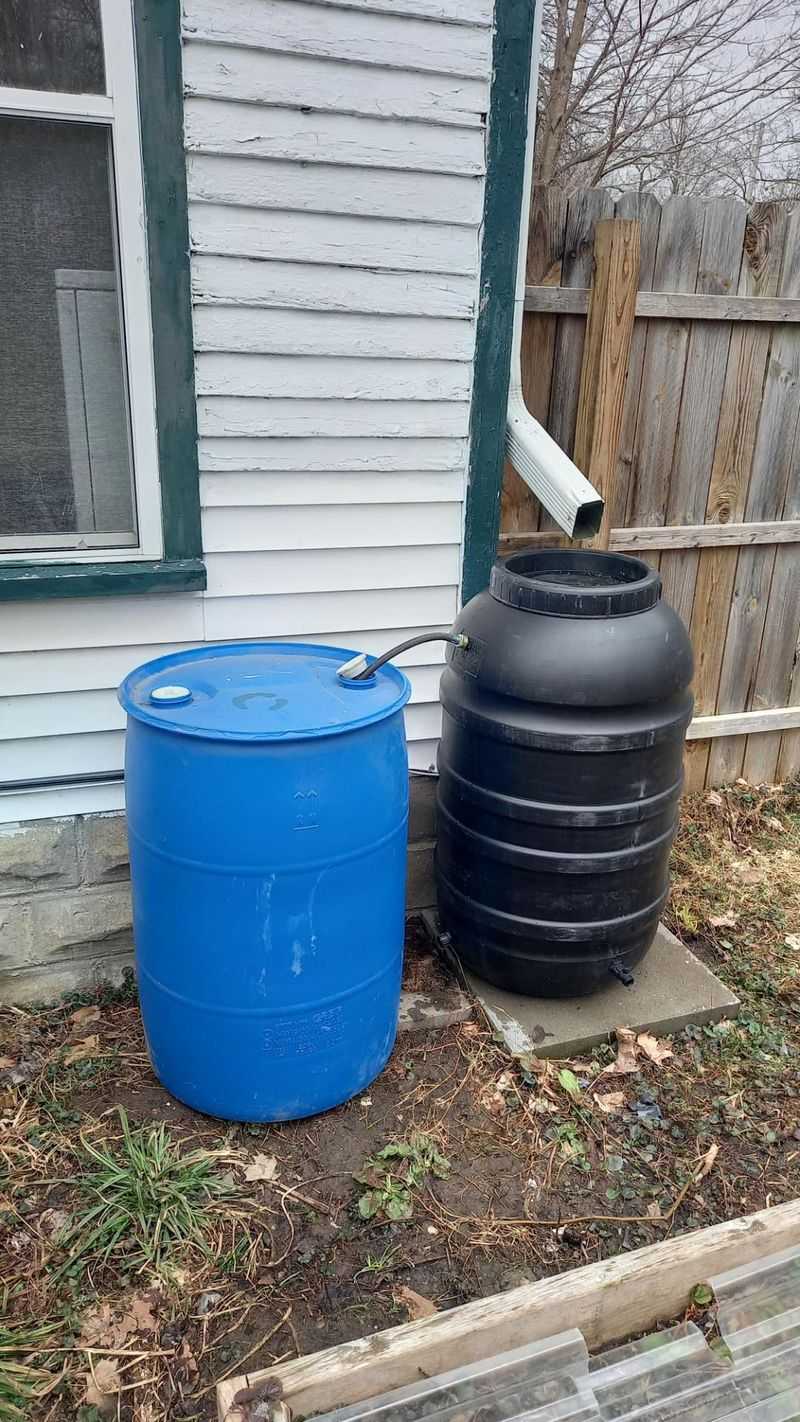
Costs can vary significantly. Rain barrels generally come with a higher price due to materials and the need for fittings.
Basins, being simpler and often smaller, are usually less expensive. So, if you’re on a budget, a basin might be the more economical choice for water collection.
Also, many basins can be DIY-made from repurposed containers, making them even more cost-effective and sustainable.
4. Aesthetic Appeal
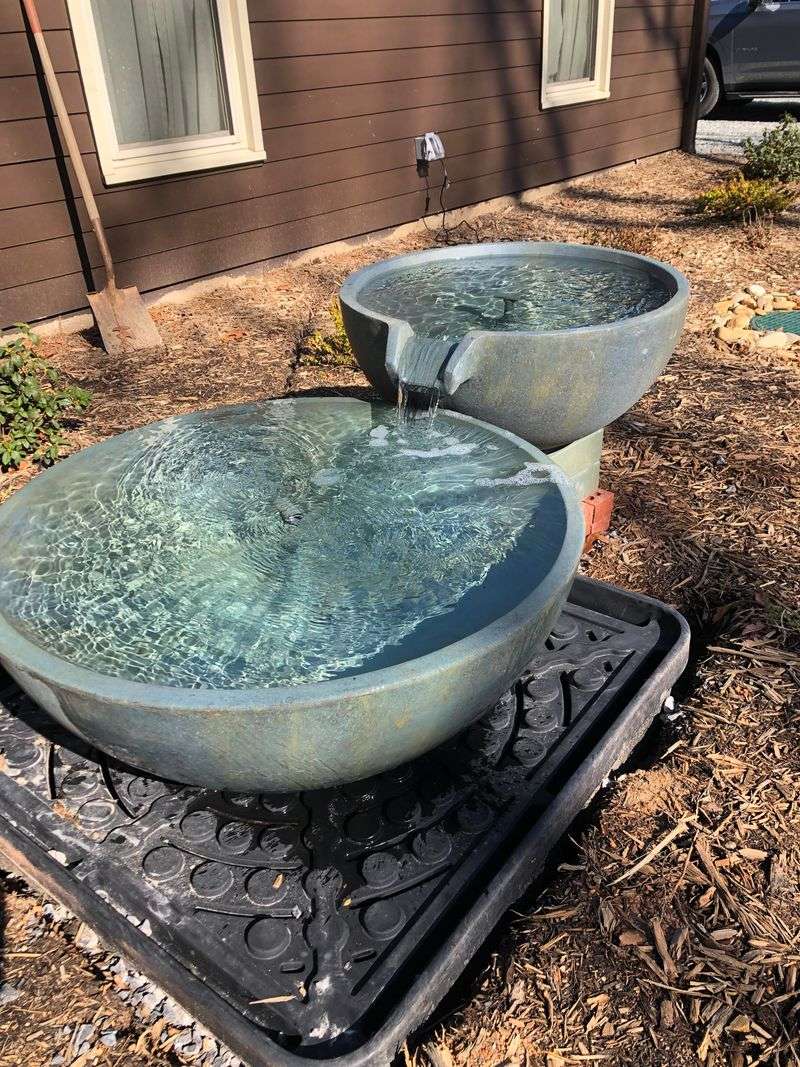
Rain barrels can be quite decorative, available in various styles and colors. Basins often have a more natural look, blending seamlessly into gardens.
Depending on your taste, you might prefer the decorative aspect of rain barrels or the earthy feel of basins. Additionally, some rain barrels are designed to mimic stone or terra cotta, offering aesthetic appeal without sacrificing function.
5. Water Collection Method
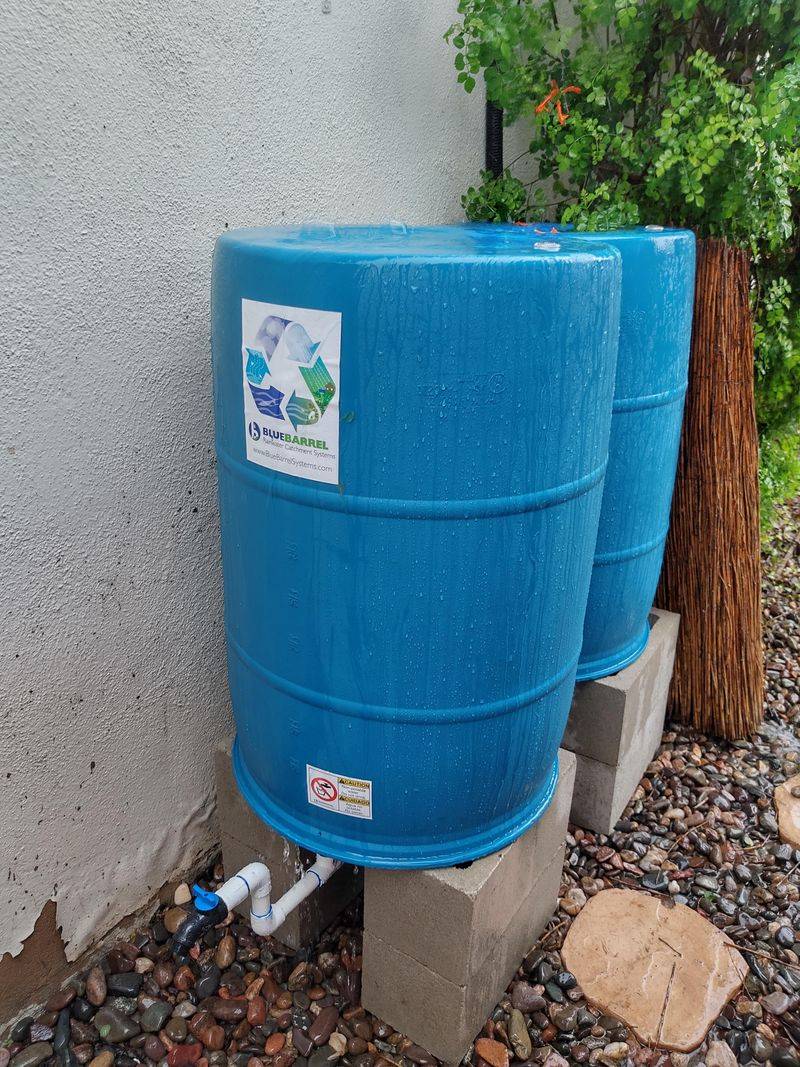
Rain barrels collect water from roofs through gutter systems, efficiently capturing runoff. Basins gather water directly from rainfall, making them ideal for open garden areas.
This distinction explains why rain barrels are perfect for urban settings, while basins suit open spaces.
Rain barrels can also help reduce stormwater runoff, which is especially beneficial in cities where drainage systems can become overwhelmed.
6. Maintenance Requirements
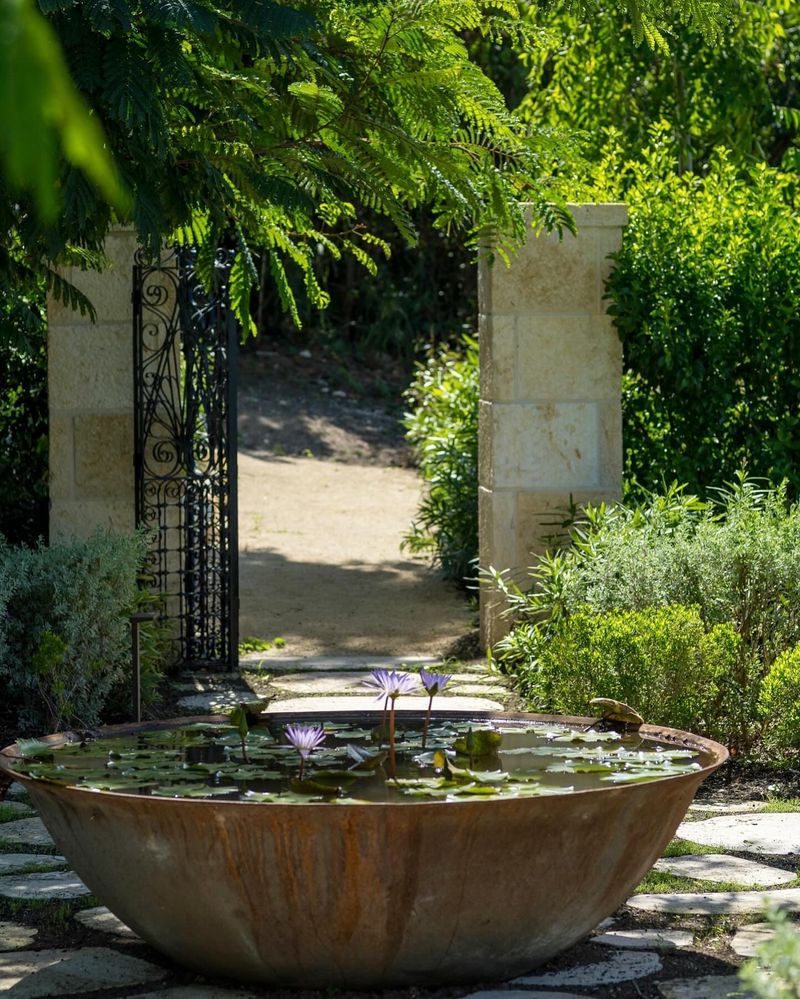
Maintenance varies between these two options. Rain barrels might need more frequent cleaning, especially if debris enters from the gutter.
Basins also require upkeep but are often simpler to clean, requiring less effort. Choose based on how much maintenance you’re willing to do.
Also, rain barrels may need seasonal care, like winterizing, to prevent cracking in freezing temperatures.
7. Space Needs
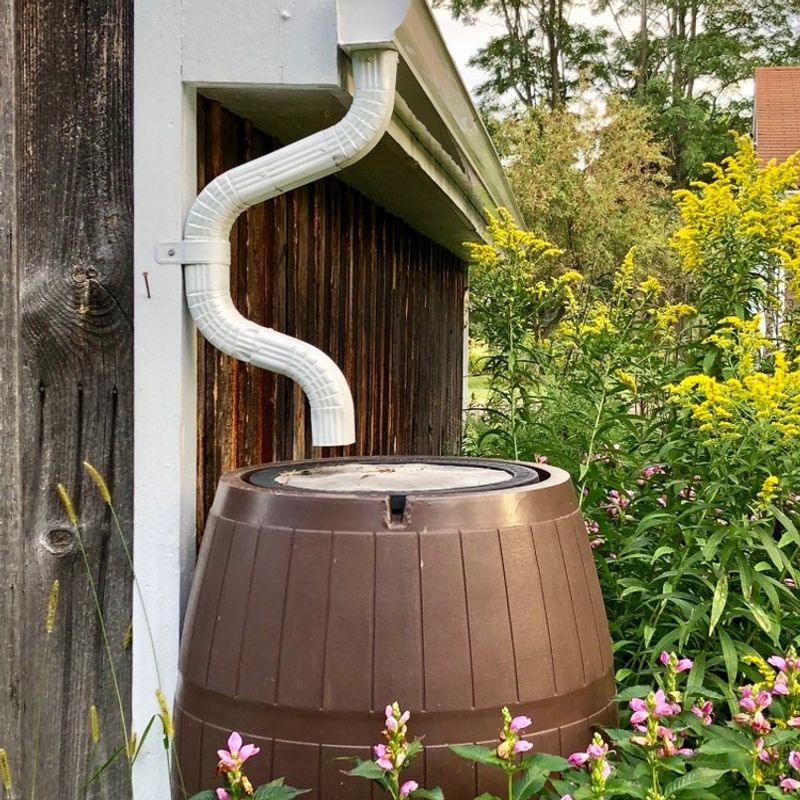
Rain barrels often take up more space due to their size and need for gutter access. Basins are usually more compact, fitting easily in small garden patches.
If space is limited, a basin might be your best bet for efficient water collection without clutter. Plus, basins can be tucked between plants or garden beds, making them easier to integrate into tight or irregularly shaped spaces.
8. Environmental Impact
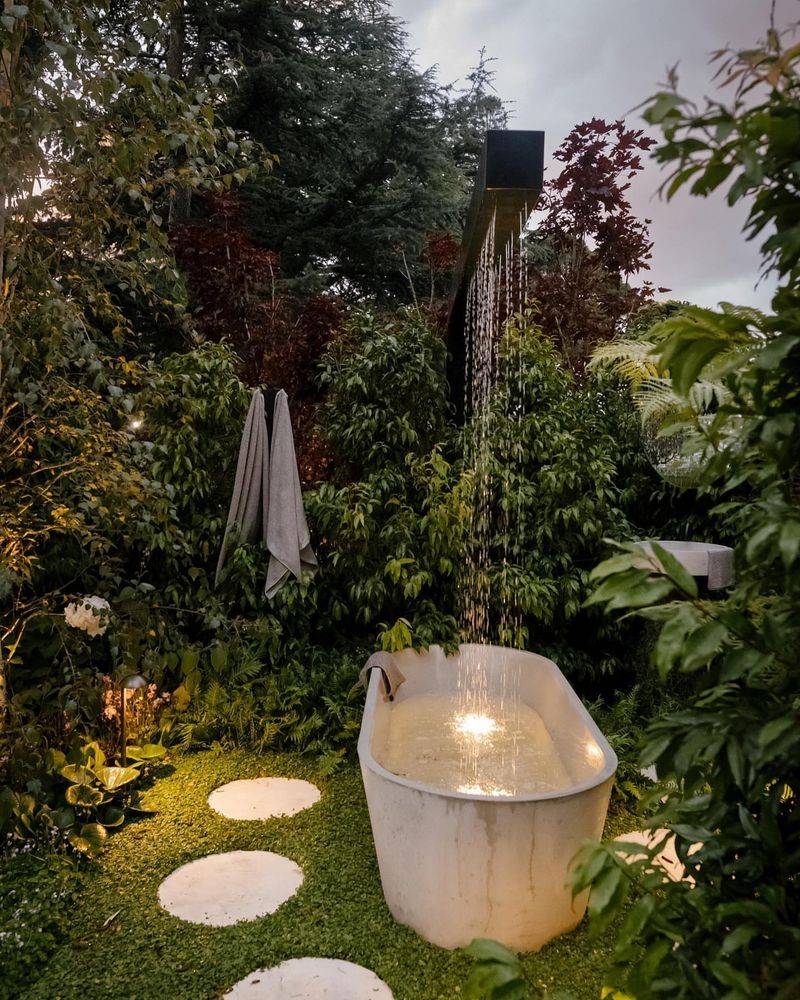
Both rain barrels and basins promote eco-friendly water use. However, rain barrels might have a lower carbon footprint over time due to their efficient water use.
Basins support biodiversity by allowing water to infiltrate soil naturally. Choose based on your environmental priorities.
Basins can also help recharge groundwater levels, making them especially valuable in areas prone to drought or soil erosion.
9. Water Quality
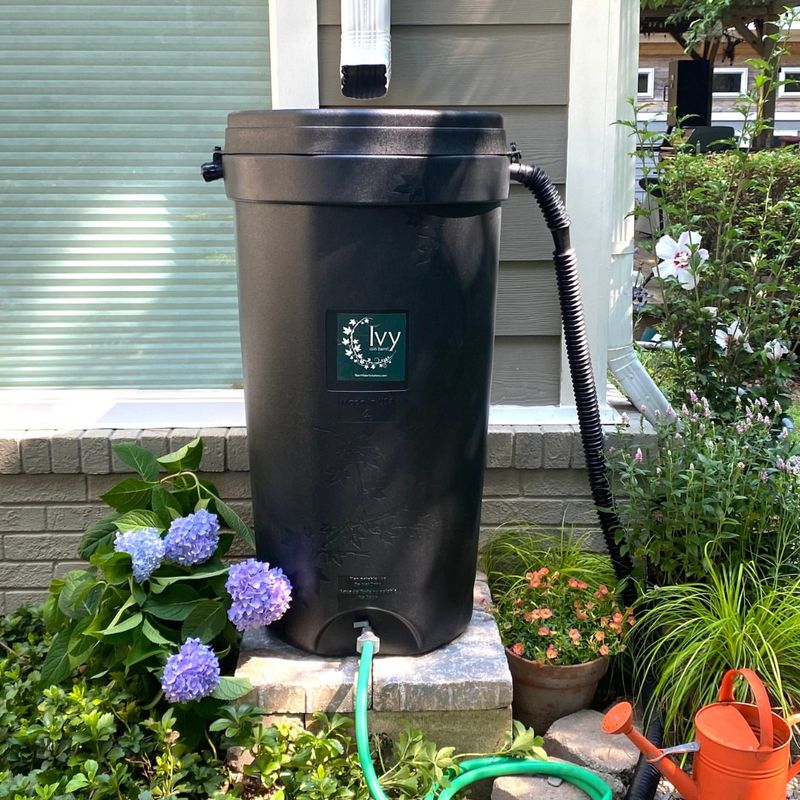
Rain barrels often collect cleaner water if properly maintained, as they use closed systems.
Basins might have more exposure to debris and contaminants. If water quality is crucial, a rain barrel may offer a better option for maintaining purity.
Additionally, many rain barrels can be fitted with filters or first-flush diverters to further improve water quality.
10. Versatility
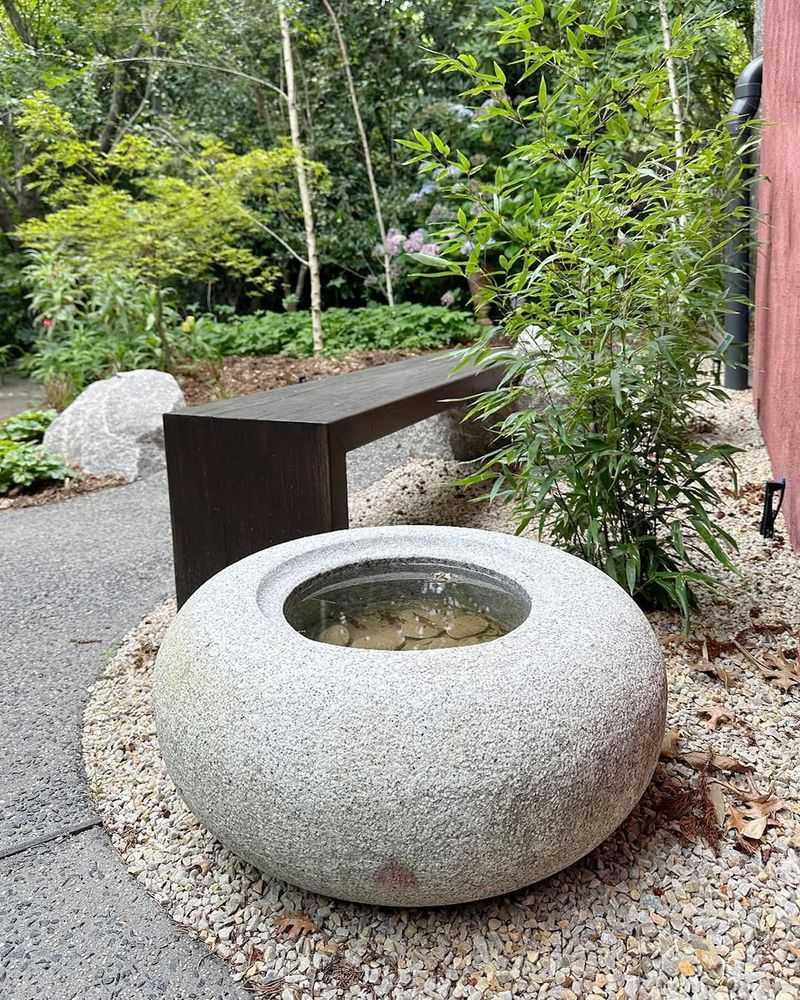
Rain barrels are versatile, providing water for gardens, cleaning, or even emergencies. Basins can double as birdbaths or decorative elements.
The versatility of rain barrels can be advantageous, but basins offer unique options for enhancing garden aesthetics and wildlife.
Some gardeners even use multiple basins throughout a yard to create a visually appealing, functional landscape design.
11. Durability
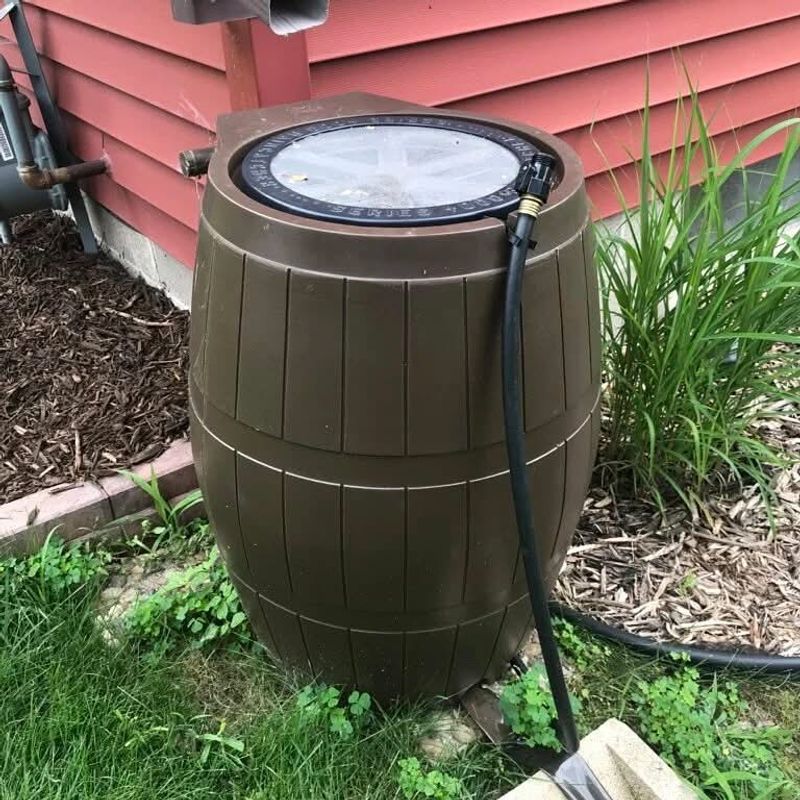
Well, durability depends on materials. Rain barrels, made from plastic or metal, offer long-lasting use. Basins, often ceramic or stone, can be durable but may crack in extreme conditions.
Consider your climate when choosing, as both have strengths in different weather scenarios.
Rain barrels may also be UV-resistant, which helps prevent degradation from prolonged sun exposure.
12. Flexibility in Placement
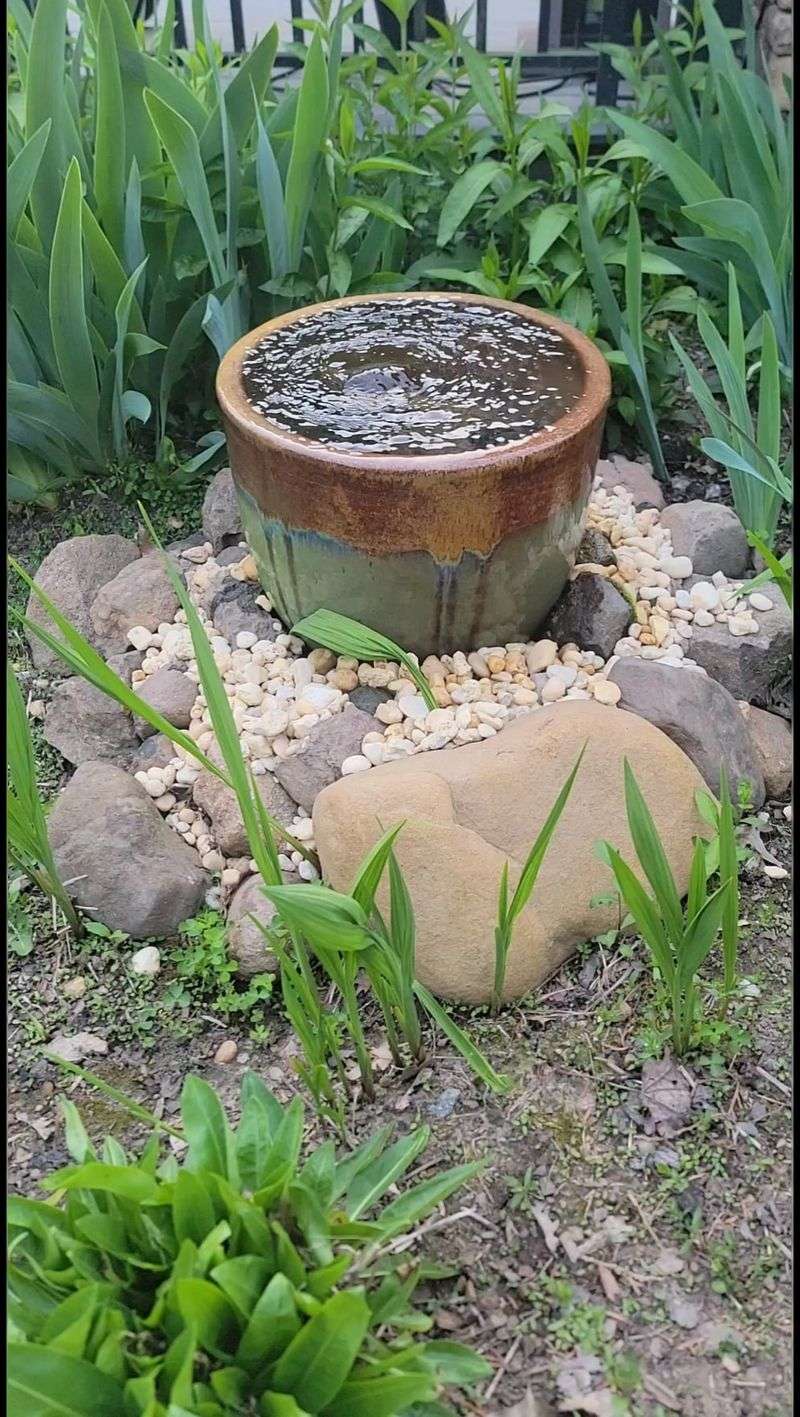
Rain barrels generally need to be near downspouts for effective use, which can limit options.
Basins can be placed anywhere, providing more flexibility in garden design. Think about where you’d like your water collection before deciding.
And remember that basins can be relocated easily, allowing you to adjust their position as your garden evolves.
13. Overflow Management
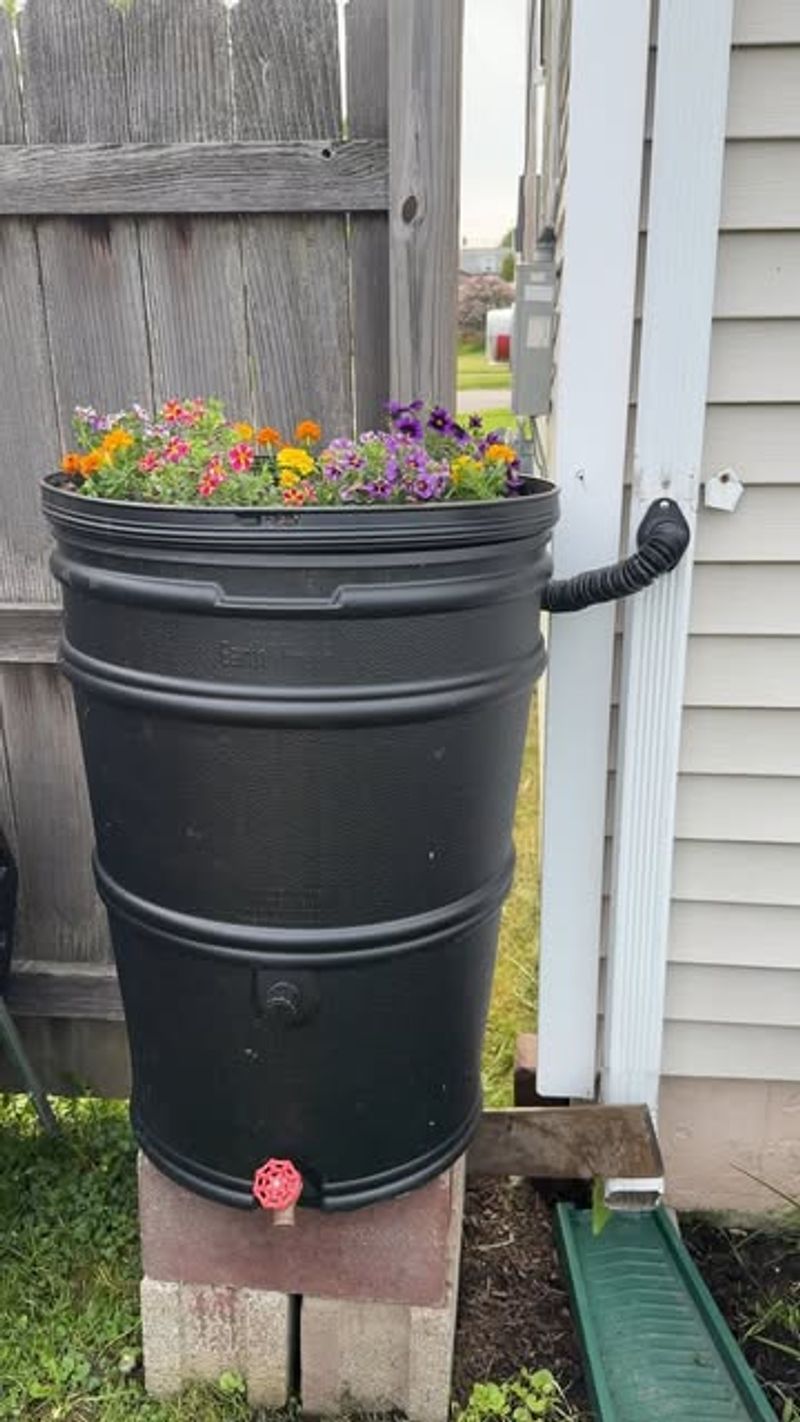
Managing overflow is crucial. Rain barrels often come with overflow systems to prevent flooding. Basins rely on natural overflow into the garden.
If you have drainage concerns, rain barrels with overflow protection might be beneficial over simple basin setups.
Some rain barrels can also be daisy-chained together, allowing excess water to flow into additional barrels for extended storage.
14. Seasonal Use
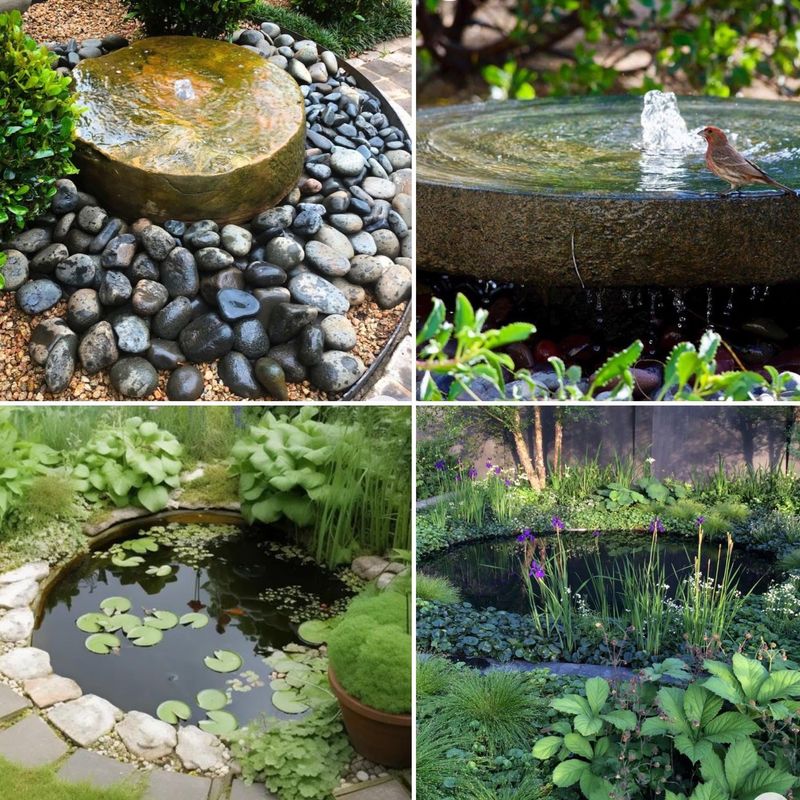
Rain barrels might need winterizing in colder climates to prevent freezing. Basins can be left as is, offering seasonal beauty.
Consider your local weather patterns; if winters are harsh, be prepared to manage a rain barrel accordingly. On the flip side, rain barrels can help extend watering capability during dry summer months, giving them year-round value with proper care.
15. Community Impact
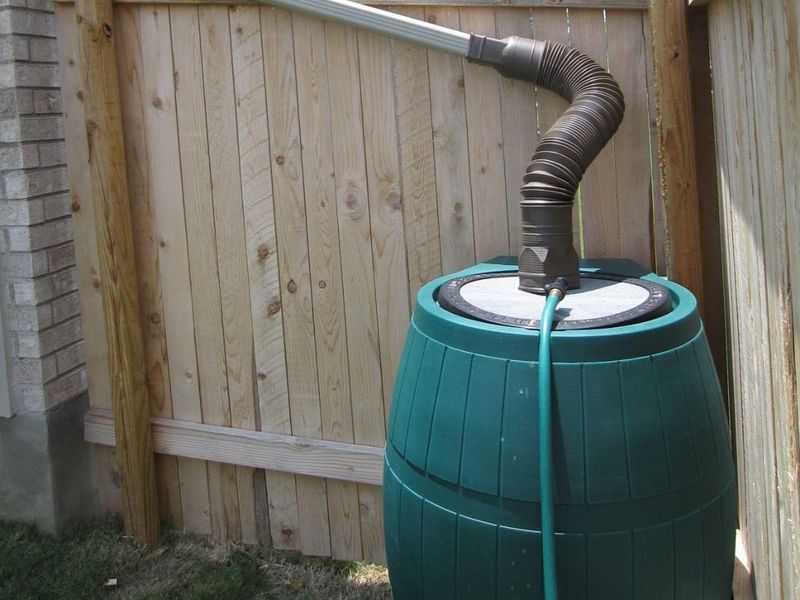
Community impact can be significant. Rain barrels in shared spaces can demonstrate water conservation education.
Basins can foster community gardens, encouraging biodiversity. Depending on your goals, both options can strengthen community ties through shared environmental efforts.
Rain barrel programs are often supported by local governments or nonprofits, making them accessible tools for broader sustainability initiatives.

